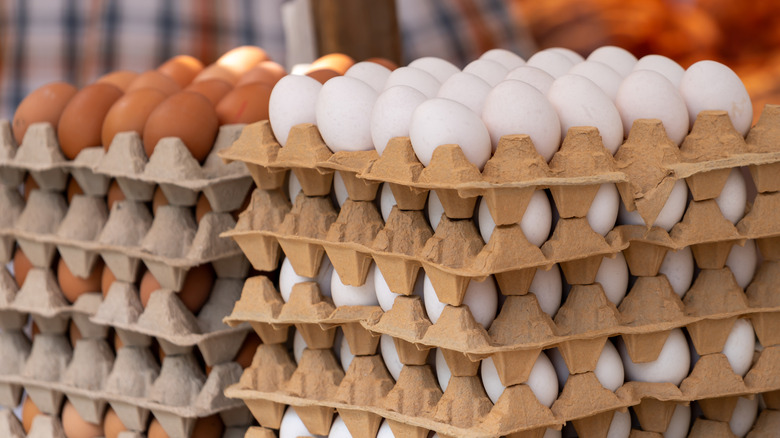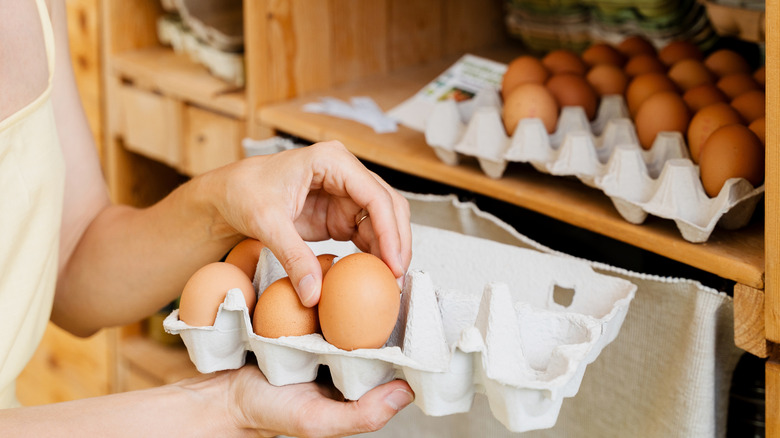Do Store-Bought Eggs Last Longer Than Farm Fresh?
Eggs are expensive. And, when it comes to selecting the type that works best for your household, storage longevity is a key factor. If you are a fan of farm-to-table, farm fresh eggs may seem appealing. However, do these last longer in the fridge than store-bought eggs, or do store-bought eggs that have gone through an industrialized cleaning process have a longer shelf life? The answer might surprise you, as farm fresh eggs typically last longer — depending on where and how you store them.
According to the U.S. Department of Agriculture, store-bought eggs kept in their original carton should be used within three weeks of purchase for best quality, but can be used for up to six weeks when stored properly. This ultimately means you'll want to avoid some of the biggest mistakes when storing eggs — which include storing them in the fridge door in that compartment with the cute egg-shaped divots.
In comparison, farm fresh eggs that have been washed and stored in the fridge can actually last up to two months. If you have not washed your farm fresh eggs, you can store them in a proper container for up to three months.
Tips for cleaning and storing your eggs
Why does washing make a difference? If you are getting your eggs from a small farm or backyard hen, washing them is an important factor. When eggs are washed, the bloom — the cuticle that envelops the delicate shell and protects the egg white and yolk, keeping air and bacteria out of the shell's pores — is removed. As a result, washed eggs are more prone to contamination and need to be placed in the fridge, preferably inside the original carton. This will protect your eggs from moisture loss and odors.
How can you be sure your eggs — whether store-bought or farm fresh — are still safe for some classic deviled eggs or Julia Child-style fluffy scrambled eggs after they've been in storage for a while? Many people swear by the float test. However, this only determines how fresh the egg is, not if it is safe to eat. After all, eggs lose moisture content over time. An egg that has been in the fridge for three weeks, but is perfectly good to use, will likely float higher in a glass of water than one that is only a week old, which drops to the bottom.
Instead, you'll want to rely on your senses and intuition. Start by checking the "sell by" and expiration dates. Additionally, if the egg smells, is cracked, or discolored, pitch it. It's always better to err on the side of safety.

